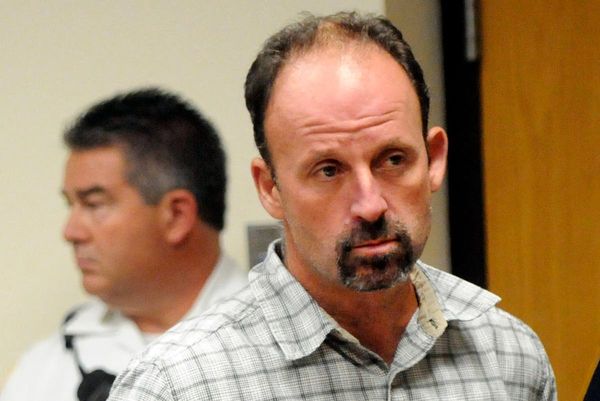
This year’s UN general assembly is supposed to be about the global south, addressing the social and economic development issues that many of the world’s poorer countries felt were forgotten last year in the uproar over Ukraine.
That was the intention at least, but the global rifts caused by Russia’s invasion still threaten to take centre stage. The US and its western allies have acknowledged that they cannot take the broad support of the bulk of UN members for granted in opposing Moscow’s war without paying greater attention to the priorities of the UN’s Group of 77 (G77), a loose coalition of developing countries.
The coming “high-level week” at the general assembly will start with a two-day meeting on sustainable development goals (SDGs). These 17 goals – such as the eradication of poverty and hunger, and the universal provision of good healthcare and education – were set out by UN member states in 2015, with a goal for their achievement by 2030.
This general assembly marks the halfway point in their progress, and the world is on track to meet only 12% of the targets. Half a billion people are likely still to be living in poverty in 2030. Nearly 100 million children will not be in school. In some areas, progress has gone into reverse. This week’s summit on Monday and Tuesday is intended to refocus concerted international effort on them.
The US envoy to the UN, Linda Thomas-Greenfield, accused America’s rivals of peddling “false narratives about the US commitment to the SDGs”. She told the Council on Foreign Relations on Friday that these rivals “want to drive a wedge between developing countries and the US because they want developing countries to think we only care about great power competition, and because they want to seed the narrative that the United States only pays lip service to the SDGs”.
The Biden administration will seek to use the SDG summit to prove it remains a champion of the UN’s highest aspirations.
There will also be a joint announcement by Joe Biden and the Brazilian president, Luiz Inácio Lula da Silva, on economic security and job creation, which reflects an effort by the US to find common ground with a Latin American power that has been ambivalent at best in its stand on the Ukraine war.
On Wednesday, the UN secretary general, António Guterres, will host a climate ambition summit at a time when the world is way behind where it needs to be to limit global warming to 1.5C, the goal set in the 2015 Paris agreement.
On Thursday, there will be a ministerial meeting to plan for Guterres’ planned summit of the future next September, which is aimed at reshaping global governance so it can better deal with the threats facing the planet.
The greatest geopolitical drama of the week, however, is expected to spring from the presence of the Ukrainian president, Volodymyr Zelenskiy, who will address the general assembly in person for the first time. He will be among the first speakers, appearing on Tuesday morning, not long after Lula and Biden (Brazil and the US are traditionally the first and second heads of state to address the assembly). On Wednesday, Zelenskiy will address a security council meeting on the war in Ukraine, which is also due to be attended by the Russian foreign minister, Sergei Lavrov.
That does not necessarily mean there will be a personal confrontation. Last year, Lavrov entered the council chamber to deliver his remarks and then left. But an unplanned close encounter is always possible.
Richard Gowan, the UN director at the International Crisis Group, described Zelenskiy’s decision to attend the general assembly in the flesh as a gamble at a time when there is growing pressure, especially from G77 states, to agree a ceasefire while just under a fifth of Ukrainian territory is under occupation.

“We shouldn’t underestimate the element of risk,” Gowan said. “If Zelenskiy goes to the general assembly and to the security council, and insists that Ukraine has to fight on, and that this is not a moment for diplomacy, I think that he will get a lot of pushback.”
Zelenskiy’s strategy in recent months, rather than allow his government to be portrayed as “against peace”, has been to launch his own initiative to pursue a settlement founded on the principles of the UN Charter, national sovereignty and territorial integrity that almost all UN member states claim to uphold.
The US, Ukraine and their allies will also emphasise the impact of Russian aggression on G77 countries, most importantly in the form of the Black Sea grain initiative, which was supposed to provide safe passage for Ukrainian cereal exports. Vladimir Putin’s withdrawal from the initiative in July led to a spike in grain prices and had a direct impact on the World Food Programme’s capacity to feed populations threatened by famine in some of the world’s poorest countries.
Turkish-led attempts to persuade Putin to change his mind have failed, and Ukraine’s backers will point to that refusal to pile up pressure on Russia this week.
Caitlin Welsh, director of the global food and water security programme at the Center for Strategic and International Studies, believes Putin is highly unlikely to bow to that pressure. “Russia sees nearly all upside and very little downside in remaining outside of the agreement. The upside that Russia sees is that Russia benefits from the destruction of Ukraine’s agriculture sector,” Welsh said. The diversion of Ukrainian grain exports westwards has also aroused protectionist responses from European farmers. “Russia also sees upside in disunity within the EU with regard to trade disruptions,” Welsh said.
The launching of the Black Sea grain initiative in July last year was a highlight of Guterres’ tenure as secretary general, and its collapse is a setback both for his leadership and for the UN as a whole. It comes at a time when the UN is struggling to justify its preeminence among a proliferation of international groups based on regional geography and common interests.
It is also a blow that only one leader from the five permanent security council members, Biden, will attend in person. Putin and China’s Xi Jinping rarely show up anyway, but this year French president Emmanuel Macron and Britain’s prime minister, Rishi Sunak, will also be absent.
The absence of global leaders comes at a time when the organisation has proved impotent in stopping major conflicts in Ukraine and Sudan, and the international community is falling well short of the goals the UN set for combating poverty, disease, famine and catastrophic climate change.
“The situation of the UN now is bleak and I think it is markedly bleaker than at the 2022 high-level week,” Gowan said. “A year on, it feels like we are a lot closer to a cliff edge.”







